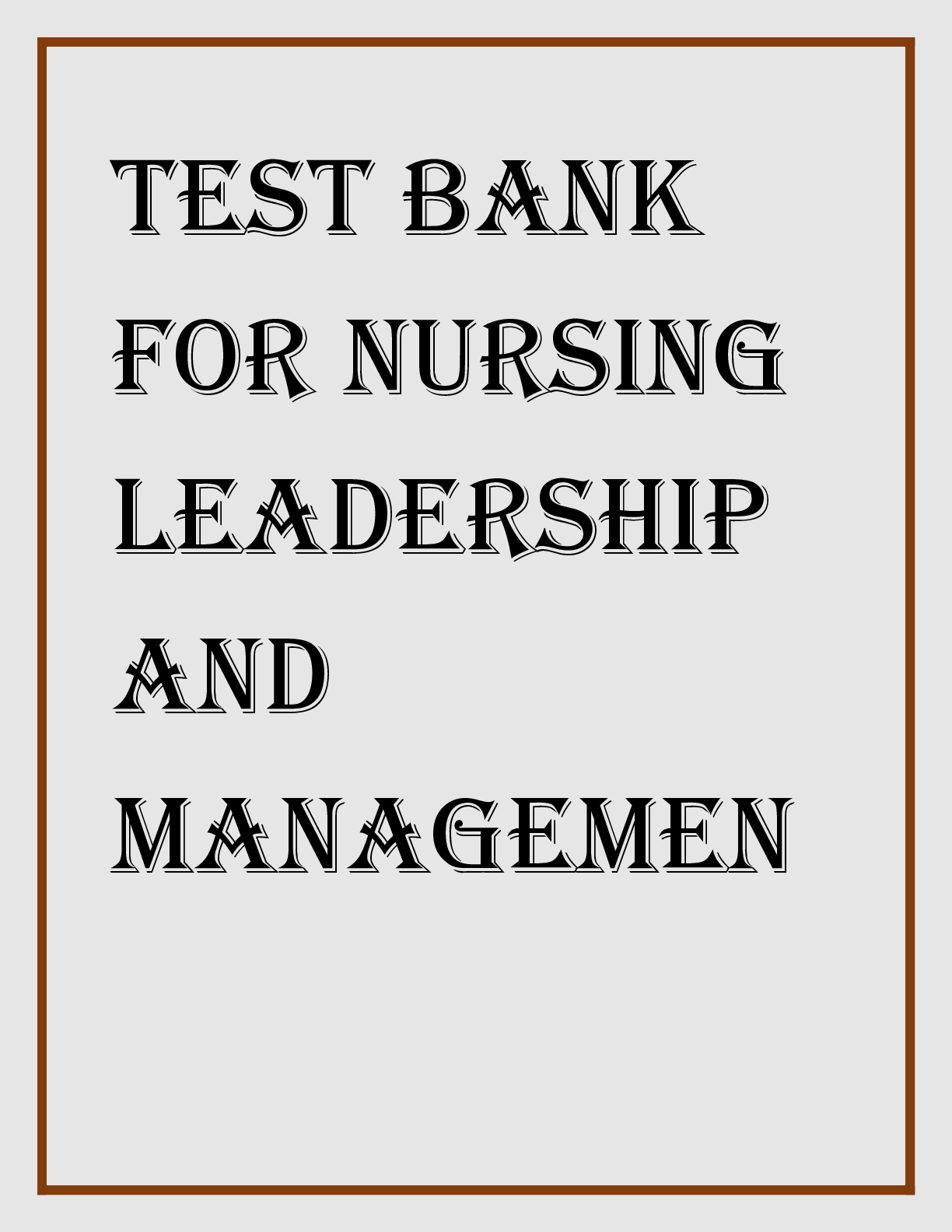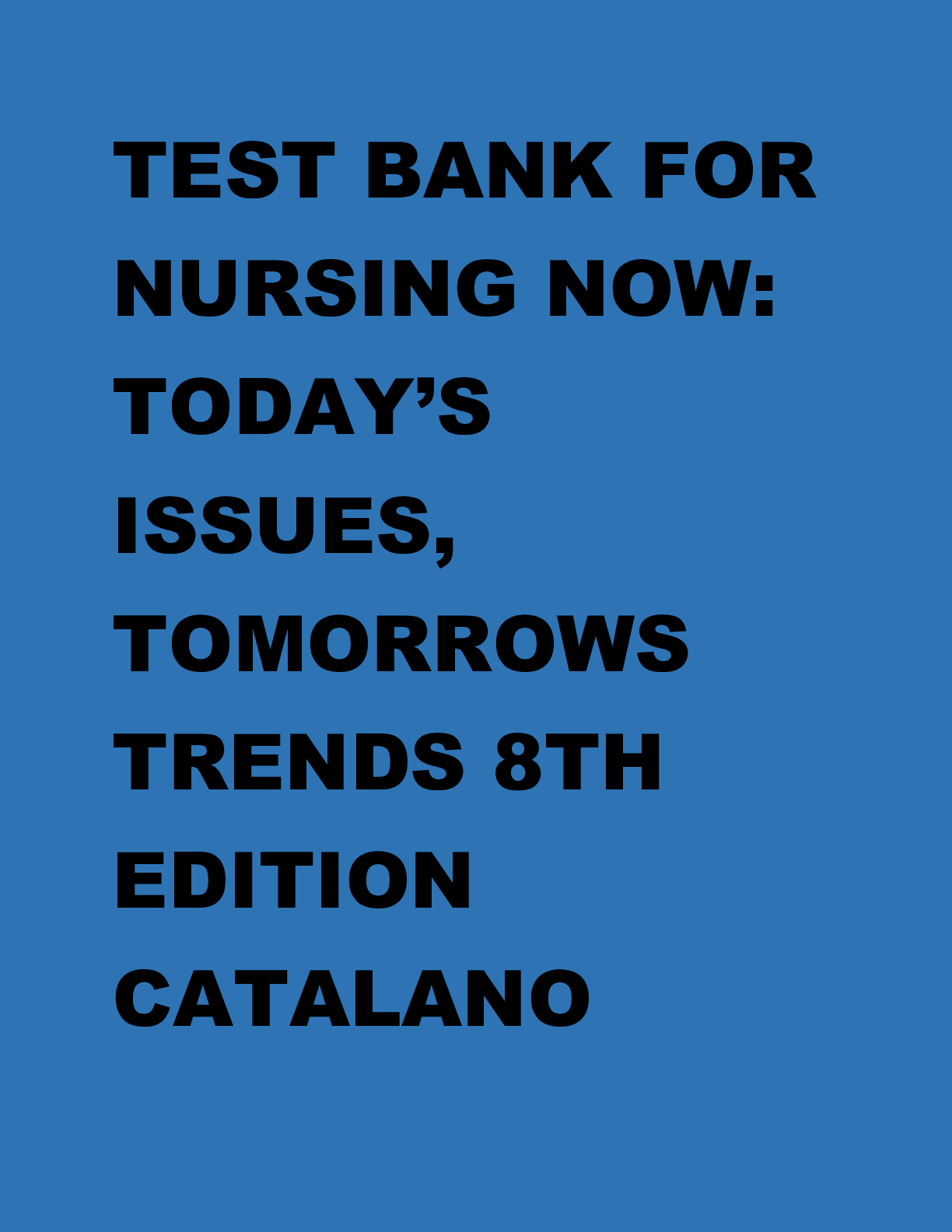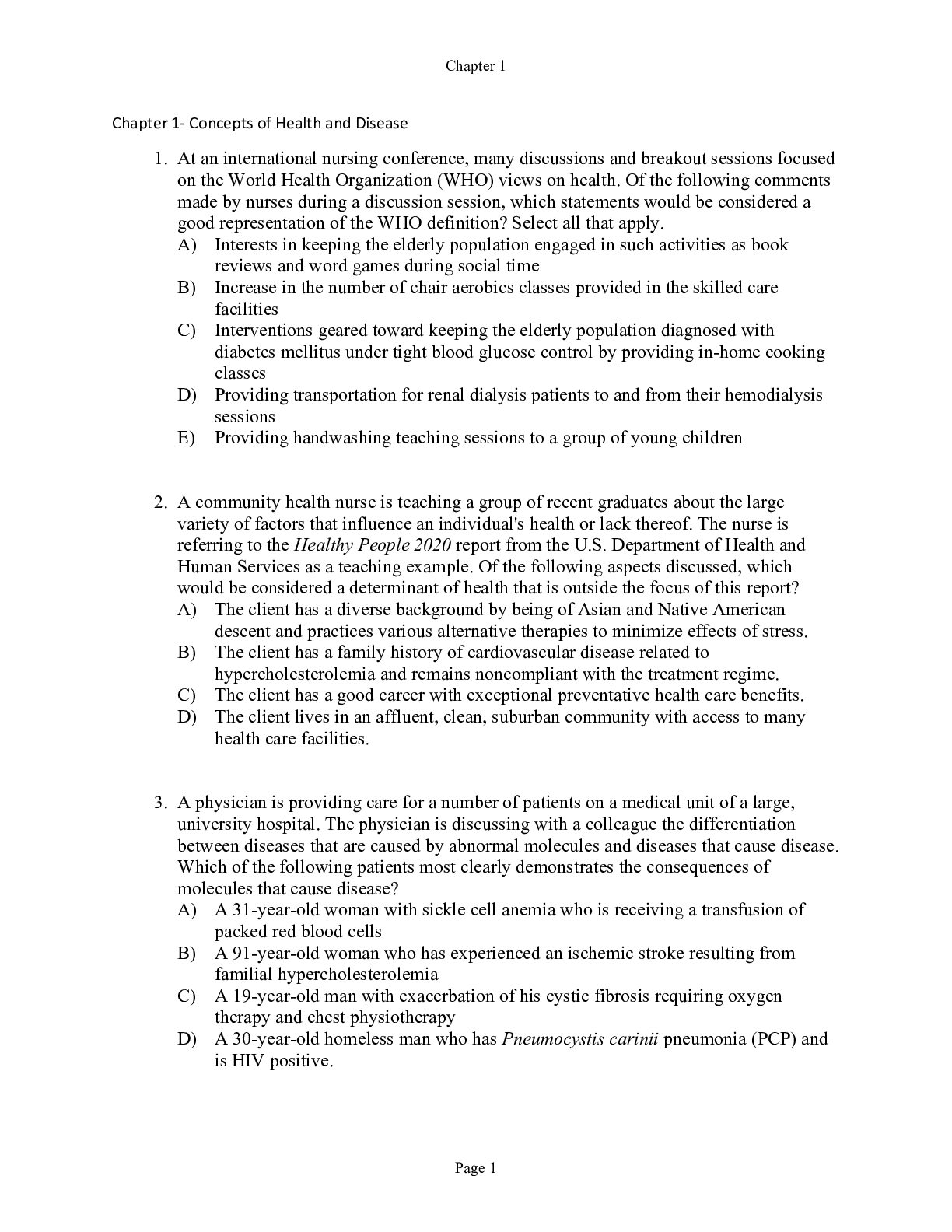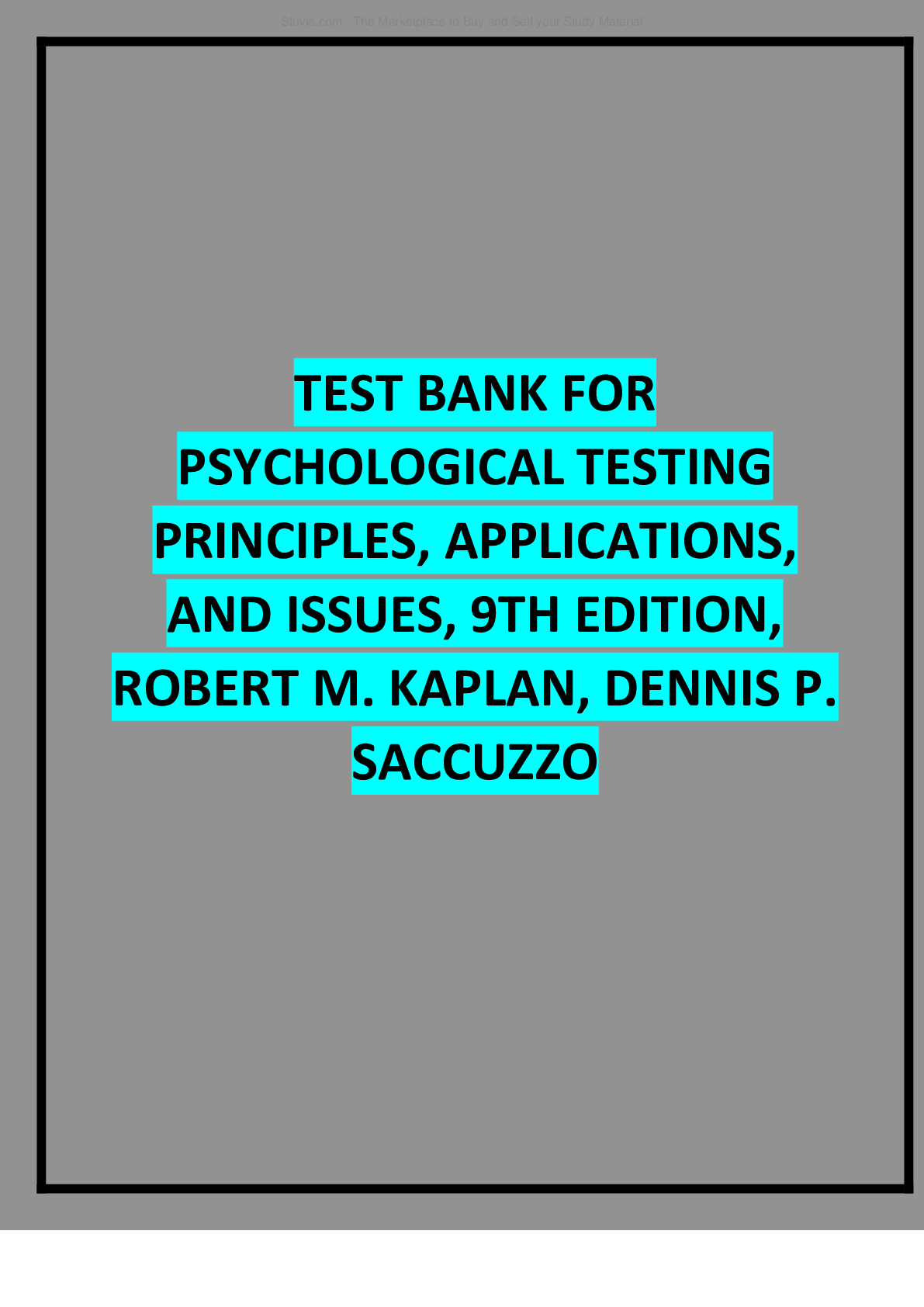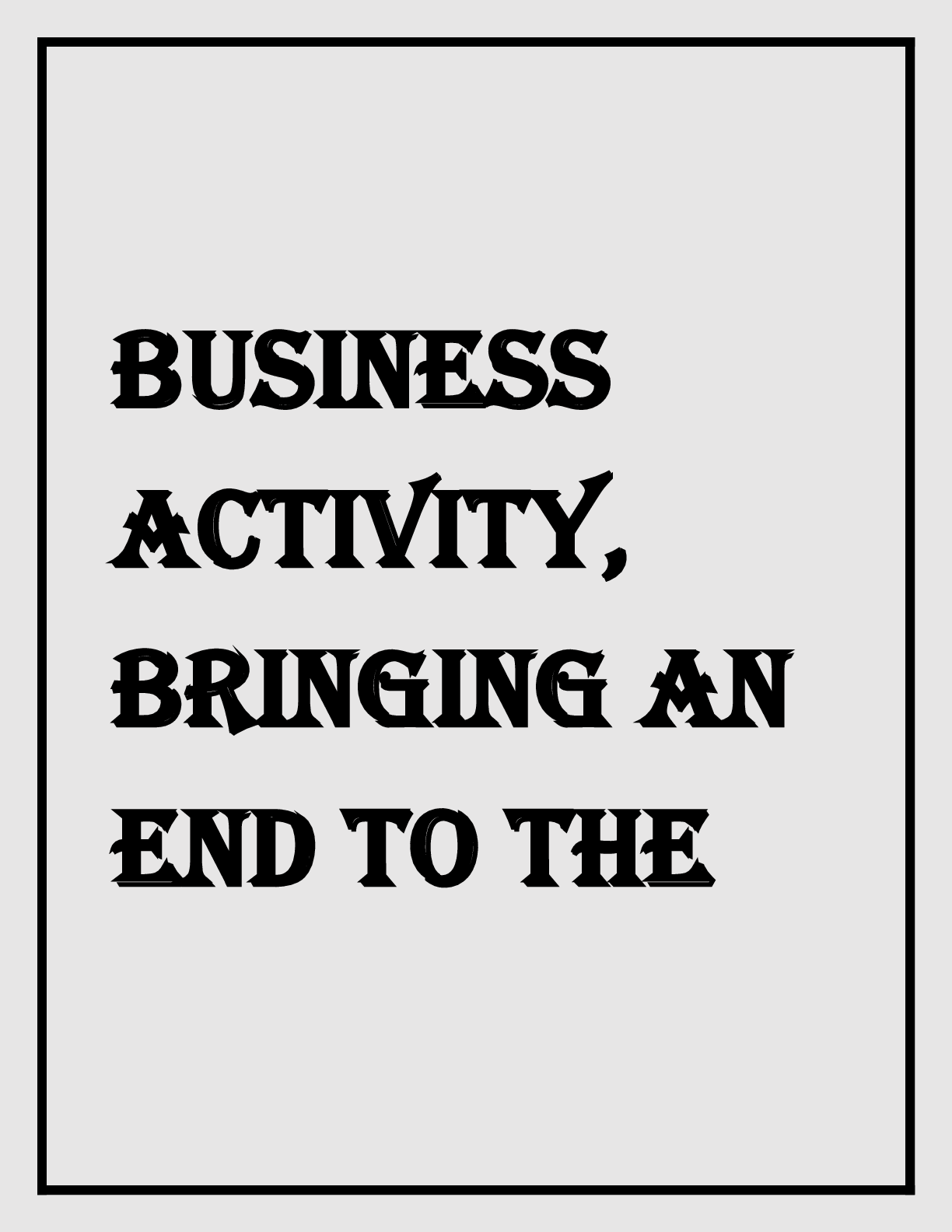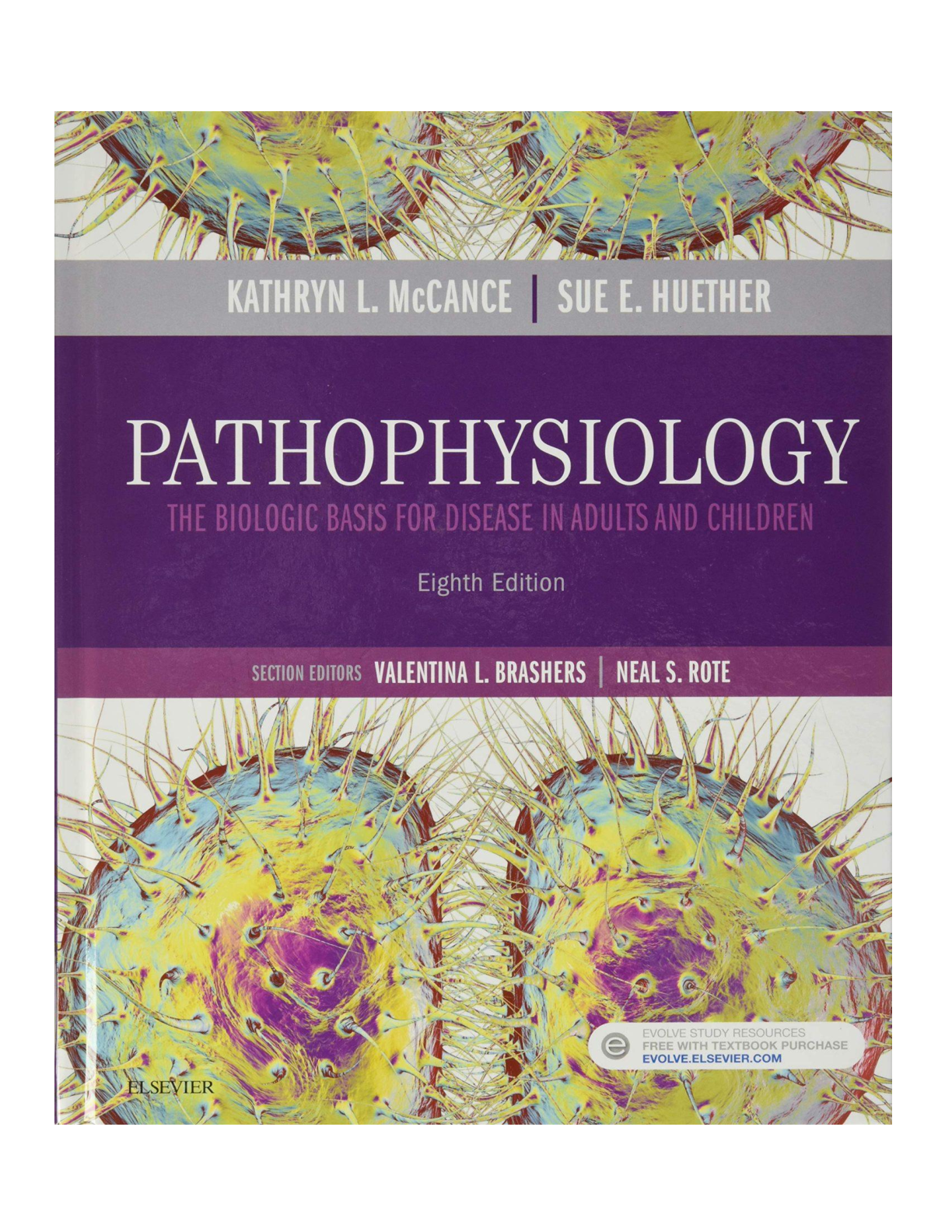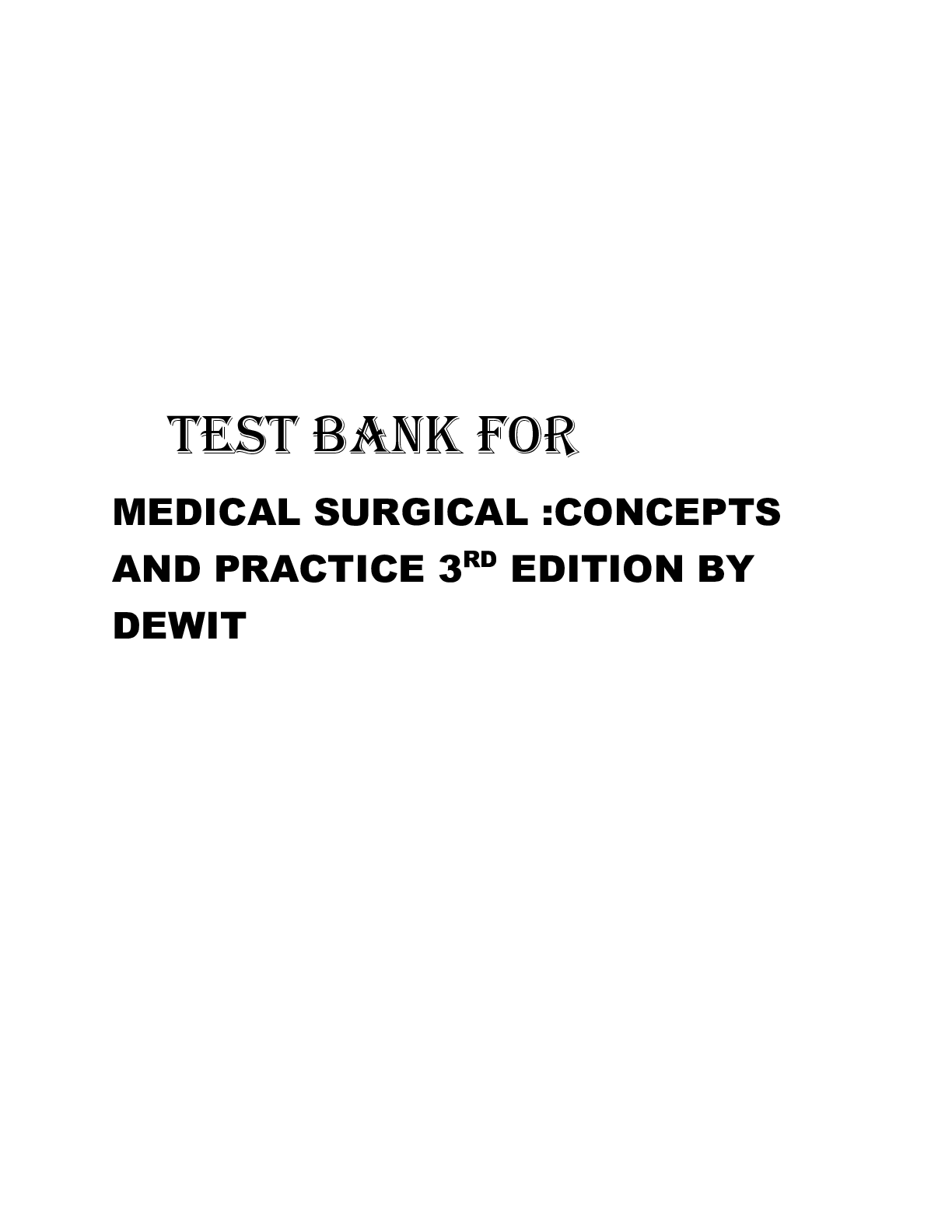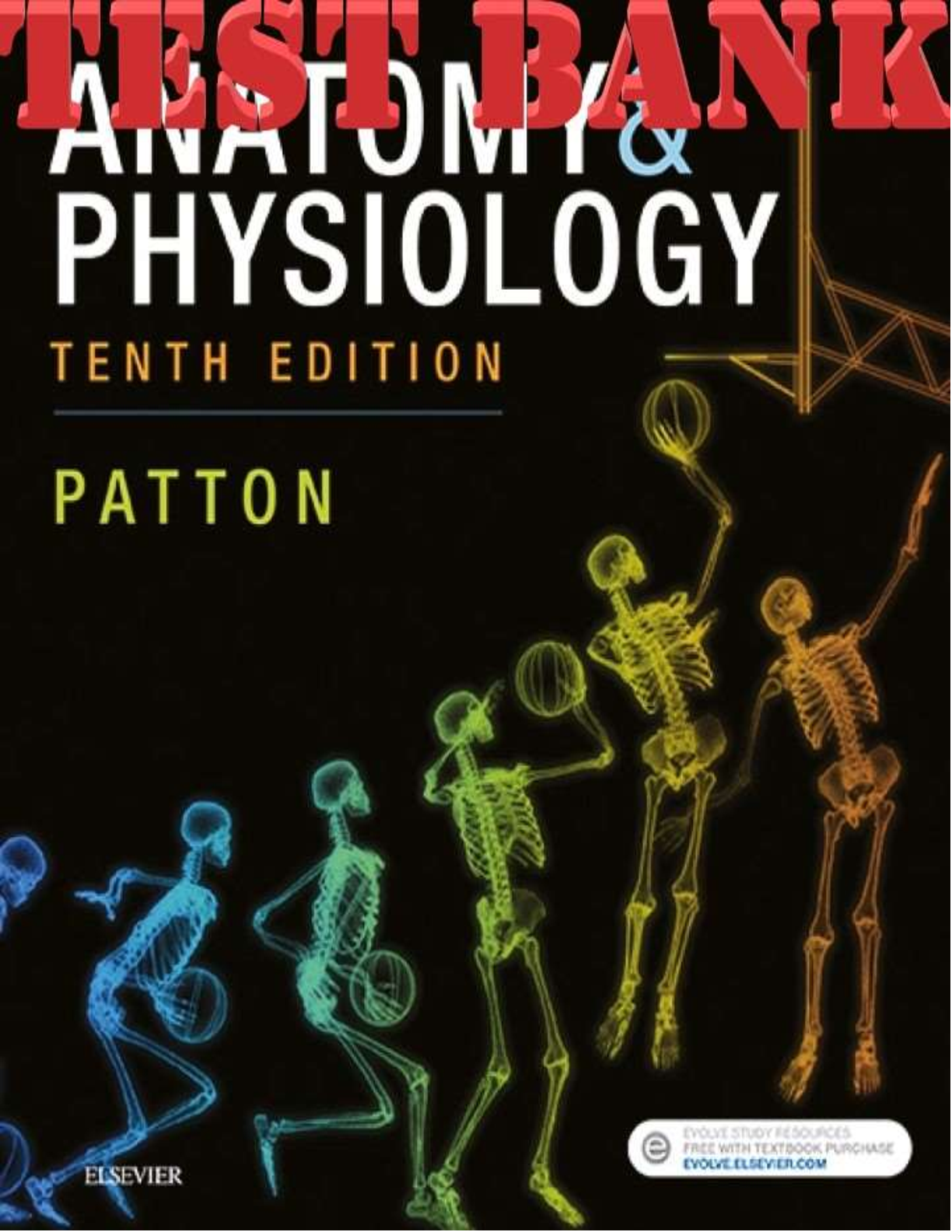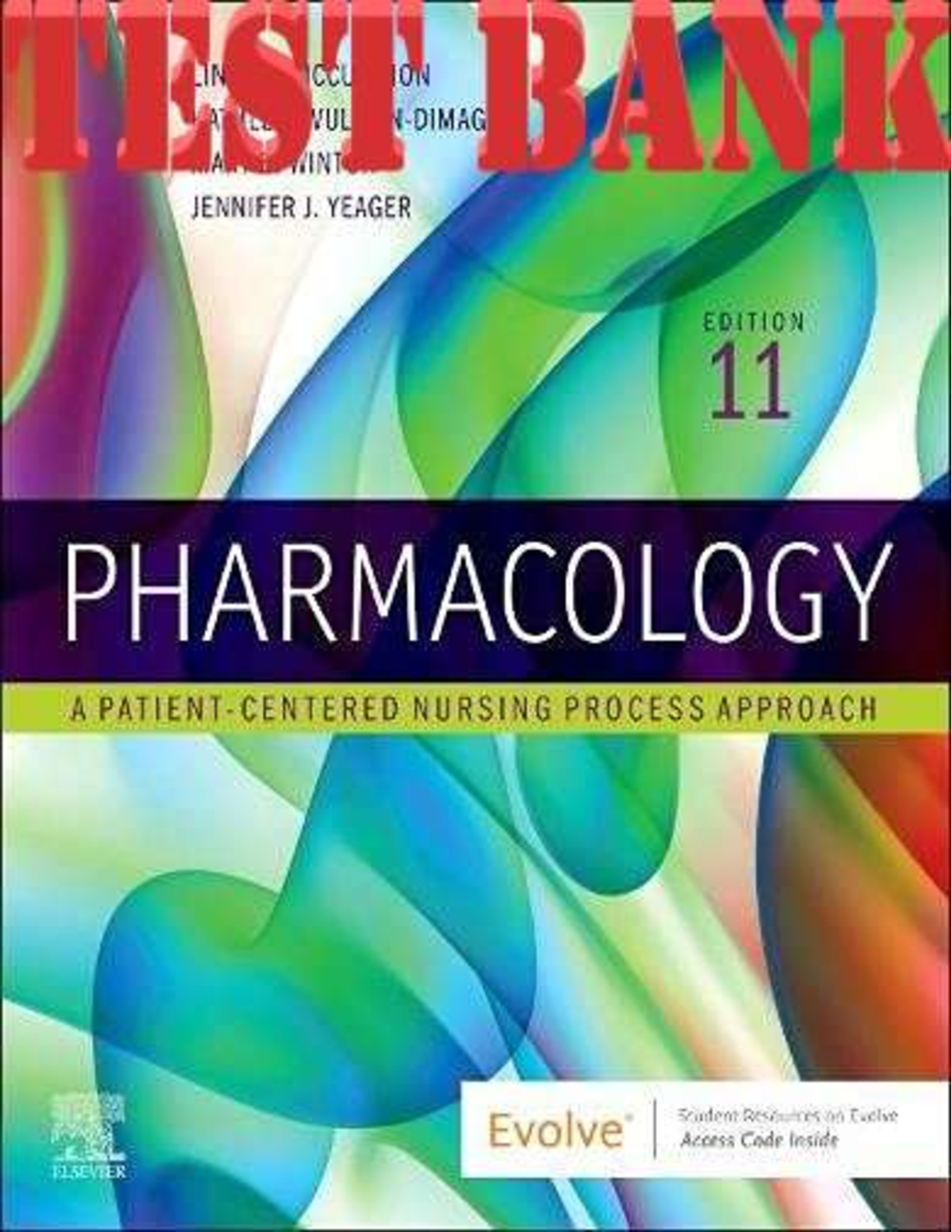*NURSING > TEST BANK > TEST BANK for Egan's Fundamentals of Respiratory Care 11th Edition by Robert M. Kacmarek, James K. S (All)
TEST BANK for Egan's Fundamentals of Respiratory Care 11th Edition by Robert M. Kacmarek, James K. Stoller, Albert J. Heuer | All Chapters 1-56
Document Content and Description Below
TEST BANK for Egan's Fundamentals of Respiratory Care 11th Edition by Robert M. Kacmarek, James K. Stoller, Albert J. Heuer MULTIPLE CHOICE 1. Which of the following is an expected role of a respir... atory therapist? 1. Promoting lung health and wellness 2. Providing patient education 3. Assessing the patient’s cardiopulmonary health status 4. Selling oxygen (O 2 ) therapy devices to patients a. 1 only b. 1 and 4 only c. 1, 2, and 3 only d. 1, 2, 3, and 4 ANS: C Respiratory care includes the assessment, treatment, management, control, diagnostic evaluation, education, and care of patients with deficiencies and abnormalities of the cardiopulmonary system. Respiratory care is increasingly involved in the prevention of respiratory disease, the management of patients with chronic disease, and promotion of health and wellness. DIF: Recall REF: p. 3 OBJ: 1 2. Where are the majority of respiratory therapists employed? a. Skilled nursing facilities b. Diagnostic laboratories c. Hospitals or acute care settings d. Outpatient physician offices ANS: C Approximately 75% of all respiratory therapists work in hospitals or other acute care settings. DIF: Recall REF: p. 3 OBJ: 1 3. Who is considered to be the “father of medicine”? a. Hippocrates b. Galen c. Erasistratus d. Aristotle ANS: A The foundation of modern Western medicine was laid in ancient Greece with the development of the Hippocratic Corpus. This collection of ancient medical writings is attributed to the “father of medicine,” Hippocrates, a Greek physician who lived during the fifth and fourth centuries BC. DIF: Recall REF: pp. 3-4 OBJ: 2 4. In 1662, a chemist published a book that described the relationship between gas, volume, and pressure. What was the chemist’s name? a. Sir Isaac Newton b. Robert Boyle c. Anthony van Leeuwenhoek d. Nicolaus Copernicus ANS: B The chemist, Robert Boyle, published what is now known as “Boyle’s law,” governing the relationship between gas, volume, and pressure. DIF: Recall REF: p. 6 OBJ: 2 5. Who discovered O2 in 1774 and described it as “dephlogisticated air”? a. Robert Boyle b. Jacque Charles c. Thomas Beddoes d. Joseph Priestley ANS: D In 1774, Joseph Priestley described his discovery of O 2 , which he called “dephlogisticated air.” DIF: Recall REF: pp. 6-7 OBJ: 2 6. Who is credited with first describing the law of partial pressures for a gas mixture? a. John Dalton b. Joseph Prestley c. Jacque Charles d. Thomas Young ANS: A John Dalton described his law of partial pressures for a gas mixture in 1801 and his atomic theory in 1808. DIF: Recall REF: p. 7 OBJ: 2 7. Who was the first scientist in 1865 to suggest that microorganisms caused many diseases? a. Thomas Young b. Louis Pasteur c. Henry Graham d. Robert Koch ANS: B In 1865, Louis Pasteur advanced his “germ theory” of disease, which held that many diseases are caused by microorganisms. DIF: Recall REF: p. 7 OBJ: 2 8. Who discovered the x-ray and opened the door for the modern field of radiology? a. John Dalton b. William Smith c. William Roentgen d. Thomas Young ANS: C In 1895, William Roentgen discovered the x-ray and the modern field of radiologic imaging sciences was born. DIF: Recall REF: p. 7 OBJ: 2 9. What was the primary duty of the first inhalation therapists? a. Provide airway care. b. Support O 2 therapy. c. Aerosol therapy to patients. d. Maintain patients on mechanical ventilation. ANS: B The first inhalation therapists were really just O2 technicians. DIF: Recall REF: p. 7 OBJ: 3 10. When did the designation “respiratory therapist” become standard? a. 1954 b. 1964 c. 1974 d. 1984 ANS: C In 1974, the designation “respiratory therapist” became standard. DIF: Recall REF: p. 7 OBJ: 3 11. Who was the first to develop the large-scale production of O2 in 1907? a. Robert Dalton b. David Boyle c. Thomas Anderson d. Karl von Linde ANS: D Large-scale production of O2 was developed by Karl von Linde in 1907. DIF: Recall REF: p. 7 OBJ: 4 12. When was the first Venti-mask introduced that allows the precise delivery of 24%, 28%, 35%, and 40% O 2 ? a. 1945 b. 1954 c. 1960 d. 1972 ANS: C The Campbell Venti-mask, which allowed the administration of 24%, 28%, 35%, or 40% O2 , was introduced in 1960. DIF: Recall REF: p. 8 OBJ: 4 13. When were aerosolized glucocorticoids for the maintenance of patients with moderate to severe asthma first introduced? a. In the 1950s b. In the 1960s c. In the 1970s d. In the 1980s ANS: C The use of aerosolized glucocorticoids for the maintenance of patients with moderate to severe asthma began in the 1970s. DIF: Recall REF: p. 8 OBJ: 4 14. Which of the following medications has never been delivered as an aerosol by a respiratory therapist? a. Inotropes b. Anticholinergic c. Mucolytic d. Antibiotic ANS: A There has been a proliferation of medications designed for aerosol administration, including bronchodilators, mucolytic, antibiotic, anticholinergic, and antiinflammatory agents. DIF: Recall REF: p. 8 OBJ: 4 15. Which two names are linked to the development of the iron lung, which was extensively used to treat the polio epidemic in the 1950s? a. Allison and Smyth b. Drinker and Emerson c. Drager and Bennett d. Byrd and Tyler ANS: B The iron lung was developed by Drinker, an engineer at Harvard University. Jack H. Emerson developed a commercial version of the iron lung that was used extensively during the polio epidemics of the 1930s and 1950s. DIF: Recall REF: p. 8 OBJ: 5 [Show More]
Last updated: 5 months ago
Preview 10 out of 443 pages

Loading document previews ...
Buy this document to get the full access instantly
Instant Download Access after purchase
Buy NowInstant download
We Accept:

Reviews( 0 )
$19.00
Can't find what you want? Try our AI powered Search
Document information
Connected school, study & course
About the document
Uploaded On
Mar 05, 2021
Number of pages
443
Written in
Additional information
This document has been written for:
Uploaded
Mar 05, 2021
Downloads
0
Views
145

